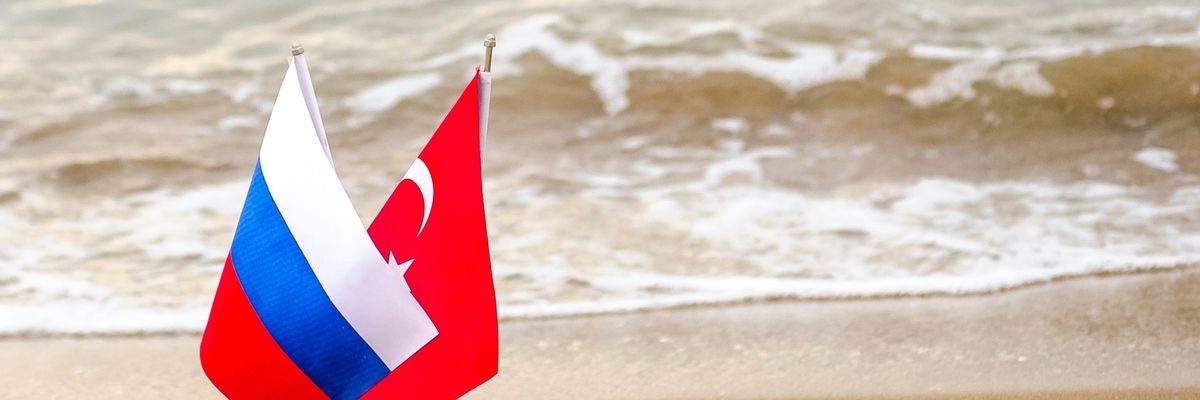Despite the current ceasefire, fighting still rages between Armenia and Azerbaijan over the disputed region of Nagorno-Karabakh. And somehow, this vicious conflict continues to receive little attention in the West. In Turkey, however, where I’ve lived the past three months, it’s a different story. The continent-spanning country of 82 million is firmly on one side, that of Azerbaijan.
As the U.S. attempts to broker peace talks between the two nations, the influence of other powers and their deep-seated interests in these areas must be kept in mind. These alliances, which are historically rooted and fully entrenched, have the power to further complicate and amplify an already critical situation. Turkey has been pushing to take a role in negotiations, requesting that along with Russia, they should work together to resolve the conflict. Of course, Turkey’s involvement makes it clear: the Nagorno-Karabakh conflict is far bigger than a localized land-dispute. Supporting Azerbaijan allows President Recep Tayyip Erdogan to score domestic points, justifying more intervention abroad. Early anti-Armenian demonstrations in Istanbul have indicated support for Erdogan’s intervention.
Turkey has long been a major supplier of arms to Azerbaijan --- its sales to the country have increased six-fold over the last year, according to one report --- and has trained its forces and conducted joint military exercises as recently as this summer. There have been unconfirmed reports of Turkish-backed forces in Syria being redirected to fight for the Azeris in Nagorno-Karabakh. Unlike its NATO allies demanding a ceasefire, Turkey has firmly declared that it supports Azerbaijan at the negotiating table and on the battlefield
This alliance is due, in part, to Turkey’s strong religious, ethnic and cultural ties to Azerbaijan and partly to tensions with Armenia due to a bloody history that includes the mass deportation and killing of Armenians by Ottoman Turks a century ago. Armenia is also a military ally and close political partner to Russia. Moscow, however, has also sold weapons and maintained ties with Azerbaijan. It has so far not followed through on its obligations under the Collective Security Treaty Organization, which would require a Russian intervention on behalf of Armenia in the event of invasion (Russia has cited that Nagorno-Karabakh is disputed land, not official Armenian territory).
But foreign journalists reported seeing a small Russian military outpost popping up on the Armenian border last week, and many fear the ongoing conflict will pit the two larger powers — Ankara and Moscow — against each other. So far, it appears neither country, currently on opposite sides in Syria and Libya, are willing, yet, to fully extend these power dynamics to another arena.
There is another thread here, indications of a potential effort by both sides to exert influence to the exclusion of Euro-Atlantic intervention, despite their differing interests and commitments across the region. Spurred by a growing nationalism, these nations appear to be seeking to carve and shape the region according to their own rules, excluding the U.S., Europe, and international organizations such as NATO. The current conflict is yet another way to attempt to shift these power dynamics. How do we know? Well, Turkey’s support for Azerbaijan and continued efforts to move negotiation away from Washington D.C. and Brussels and toward Ankara and Moscow, for starters.
The Nagorno-Karabakh conflict has already claimed thousands of lives (exact numbers are unclear), and the longer it goes on, the more likely it is to become something broader and more traumatic for the region. In a world of shifting global power dynamics and evolving information, outside influence cannot be ignored. Those seeking to resolve the conflict, such as recent efforts brokered by the U.S. and France, must consider the wider net of national identities. Given the intense influence on attitudes and actions in the region, with the potential to negate or aid attempts to broker peace, watching the next moves of Moscow and Ankara are key to assessing where this might go in the immediate future.
The Nagorno-Karabakh conflict needs to receive attention for the very real suffering it's causing. But, sadly, ending that conflict certainly won't spell the end of the tension that hangs heavily in the air in the region. It'll take much more than that.
Alice Calder is a contributor for Young Voices and TradeVistas, writing on issues in trade, the future of work, and the intersection of economics and culture. Follow her on Twitter @AliceCalder
















